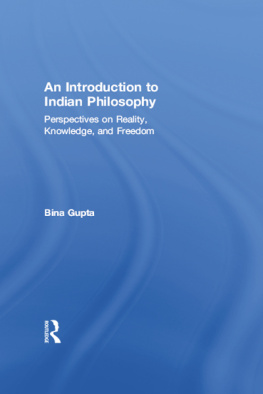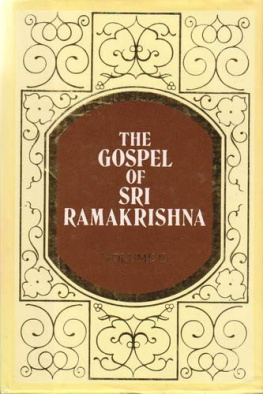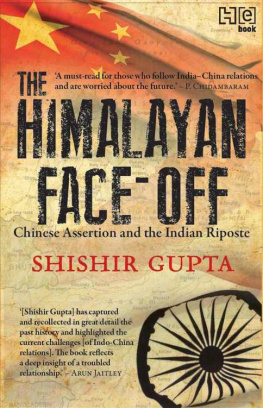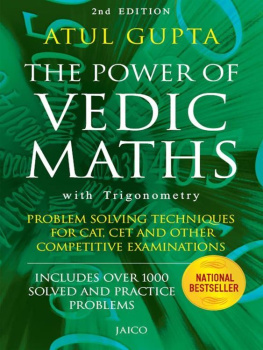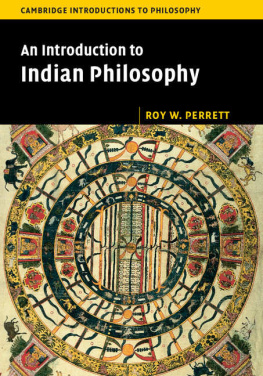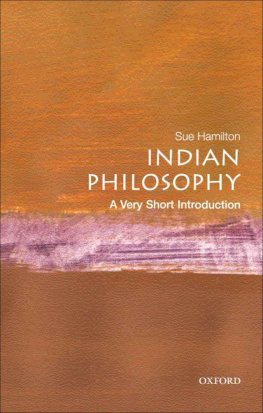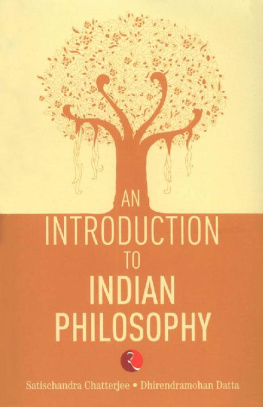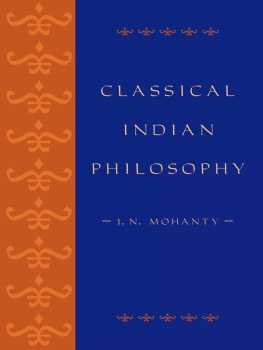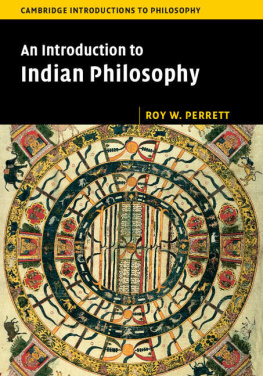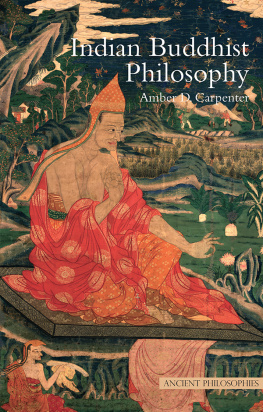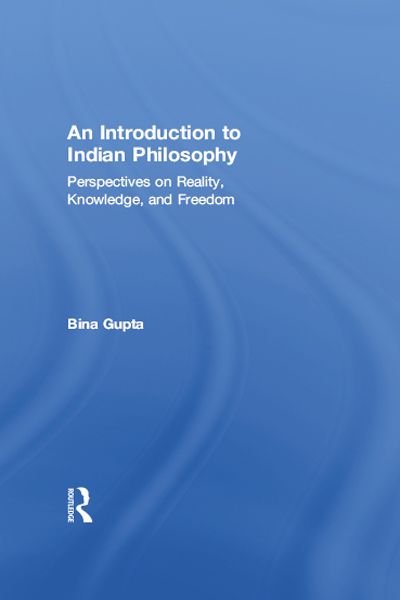Gupta - An introduction to Indian philosophy : perspectives on reality, knowledge, and freedom
Here you can read online Gupta - An introduction to Indian philosophy : perspectives on reality, knowledge, and freedom full text of the book (entire story) in english for free. Download pdf and epub, get meaning, cover and reviews about this ebook. City: New York, Indien, year: 2012, publisher: Taylor & Francis;Routledge, genre: Religion. Description of the work, (preface) as well as reviews are available. Best literature library LitArk.com created for fans of good reading and offers a wide selection of genres:
Romance novel
Science fiction
Adventure
Detective
Science
History
Home and family
Prose
Art
Politics
Computer
Non-fiction
Religion
Business
Children
Humor
Choose a favorite category and find really read worthwhile books. Enjoy immersion in the world of imagination, feel the emotions of the characters or learn something new for yourself, make an fascinating discovery.
An introduction to Indian philosophy : perspectives on reality, knowledge, and freedom: summary, description and annotation
We offer to read an annotation, description, summary or preface (depends on what the author of the book "An introduction to Indian philosophy : perspectives on reality, knowledge, and freedom" wrote himself). If you haven't found the necessary information about the book — write in the comments, we will try to find it.
An Introduction to Indian Philosophy offers a profound yet accessible survey of the development of Indias philosophical tradition. Beginning with the formation of Brahmanical, Jaina, Materialist, and Buddhist traditions, Bina Gupta guides the reader through the classical schools of Indian thought, culminating in a look at how these traditions inform Indian philosophy and society in modern times. Offering translations from source texts and clear explanations of philosophical terms, this text provides a rigorous overview of Indian philosophical contributions to epistemology, metaphysics, philosophy of language, and ethics. This is a must-read for anyone seeking a reliable and illuminating introduction to Indian philosophy.
Gupta: author's other books
Who wrote An introduction to Indian philosophy : perspectives on reality, knowledge, and freedom? Find out the surname, the name of the author of the book and a list of all author's works by series.

